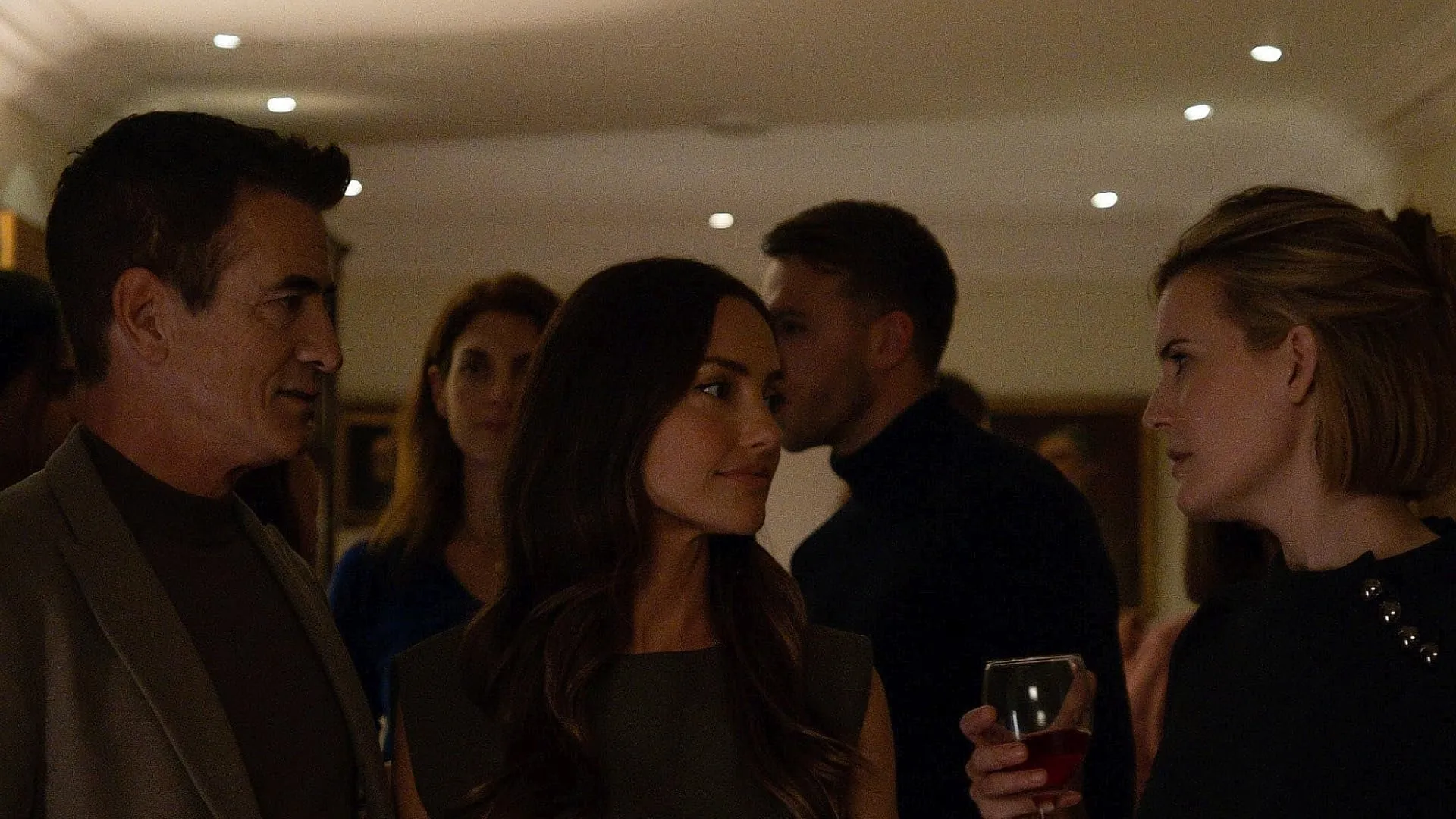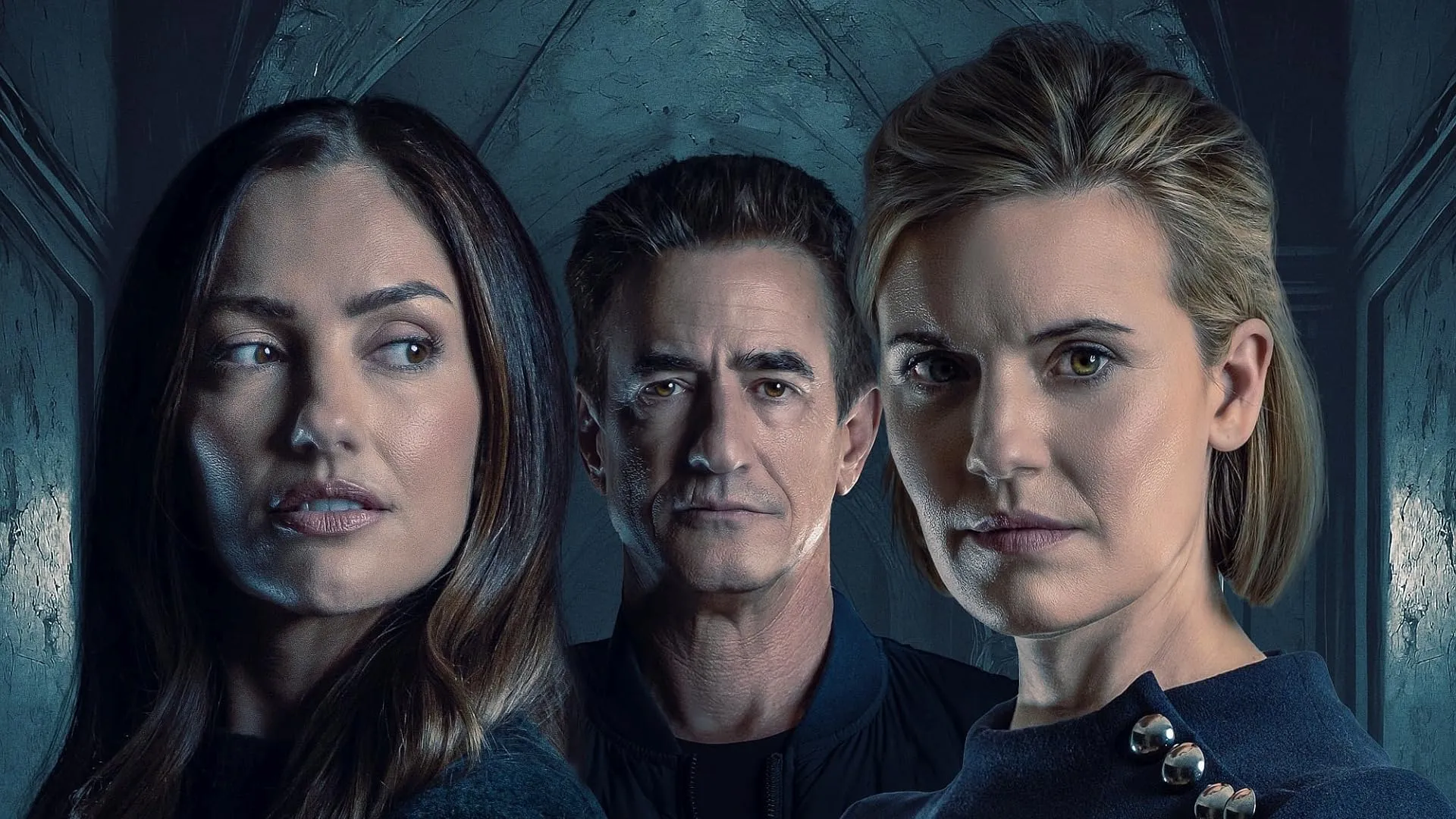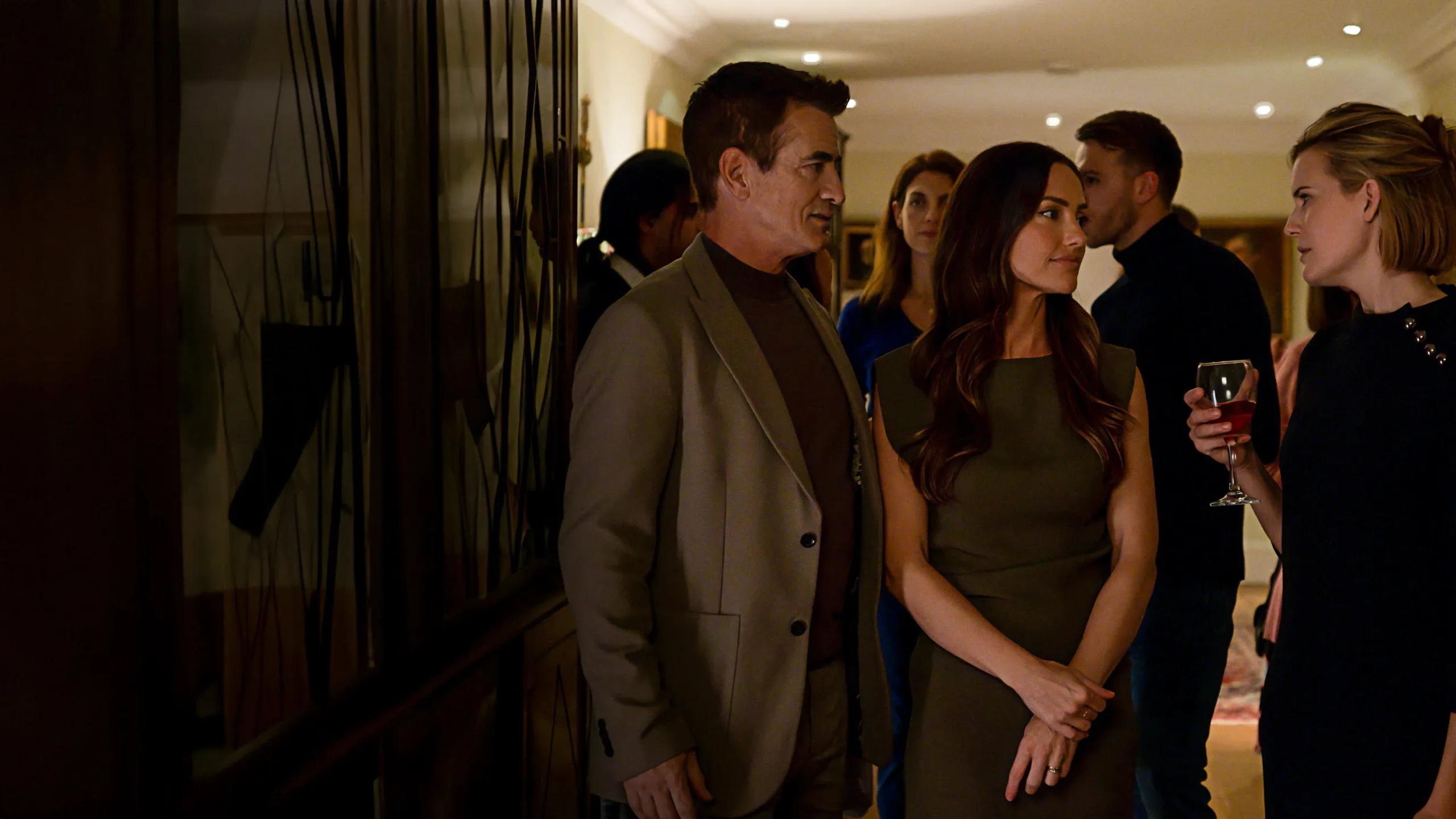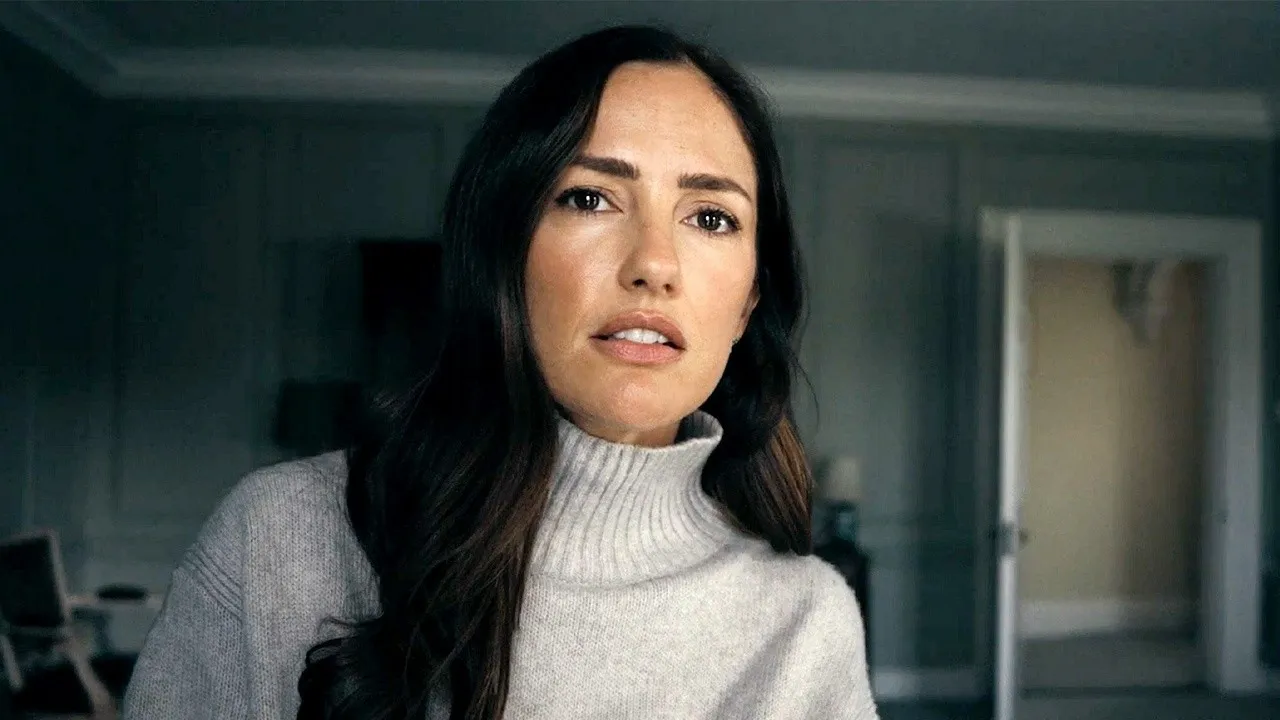Minka Kelly leads the cast in Blackwater Lane, bringing to life Cass Anderson, a drama teacher struggling to understand disturbing events unfolding around her. Adapted from B.A. Paris’s novel The Breakdown, the film follows Cass down a twisting path of supernatural mysteries and unraveling mental health.
Dermot Mulroney and Maggie Grace co-star as Cass’s husband and best friend, their performances deepening the intricate narrative. Set in a sprawling English countryside manor, the film weaves psychological thrillers with supernatural elements.
Director Jeff Celentano builds tension through the lush yet unsettling backdrop. Viewers are drawn into Cass’s deteriorating mental state as uncanny occurrences disrupt her life. Meanwhile, Minka Kelly’s emotionally powerful portrayal anchors the movie in grounded psychological drama.
The film also probes timely themes of trauma and gaslighting through Cass’s experiences. While not without flaws, Blackwater Lane remains an engaging mystery that borders on horror. Overall, the film demonstrates promise through its unflinching exploration of one woman’s battle to discern reality.
Into the Woods
Nestled deep within the English countryside lies Cass Anderson’s remote estate, her home with husband Matthew. As the head drama teacher at the local high school, Cass seems settled into rural life. But her quiet existence is about to take a disturbing turn.
One chilly evening, Cass drives the lone road through Blackwater Woods after drinks with colleagues. There, amidst the gloom, she spots a vehicle stranded in the brush with a figure inside. Unease washes over Cass, though she hurriedly drives on without checking the poor soul.
The next morning, news spread that the woman suffered foul play. What’s more, Cass realizes with shock that the victim was familiar—a coworker of her dearest friend Rachel. Worse yet, Cass’s memory of that night carries gaps.
In the shadows of Cass’s sprawling abode, strange happenings manifest. Ghostly whispers echo through empty halls as Cass contends with her fragile mental state. Matthew dismisses her worries, pointing to Cass’s family history of instability.
As a detective probes the unsolved case, suspicion falls on those close to Cass. Perhaps her caring friend Rachel knows more than she lets on. Or could her companionable colleague John harbor darker desires?
When the killer’s trap closes around Cass, she must unravel the nefarious web of lies strangling the truth. Someplace amidst the deceit lay answers that could save her, if only she could discern reality from the nightmare unfolding in Blackwater Woods.
Portraying Paranoia
Minka Kelly shines as the unraveling Cass Anderson. From the first moments, her delicate handling of the character draws us deep into Cass’s fraying psyche. Kelly breathes visceral life into each doubt and fear churning within. She captures the fragility of a woman fighting to separate reality from hallucination with a raw, internalized intensity.
Dermot Mulroney grounds the story as the understandably skeptical Matthew. His initial support of his wife, though misguided, feels genuine. As Cass’s mental state deteriorates, Mulroney navigates the heartache of watching her slip away with a resigned humanity. Their interactions burst with the familiar rhythms of a strained marriage, elevating the domestic drama.
Maggie Grace provides the grounded practicality sorely needed. As Cass’s concerned friend Rachel, she brings an empathetic counterbalance. Grace ensures the worries swirling around Cass remain tangible and understandable to an outside eye. Her no-nonsense trust contrasts Kelly’s unraveling, pulling audiences back from the brink with her.
Supporting faces freshen Blackwater Lane’s mysteries. Alan Calton imbues potential suspect John with charming wit beneath lurking shadows of desires left unchecked. As the stoic Detective Lawson, Natalie Simpson cuts through hysteria with calm compassion.
While the cast breathes magnetic life into this psychological cat-and-mouse, some characters stay surface-level, despite the actors’ efforts. A flushed-out build of all these intricate pieces could have strengthened an already compelling core. But in the pulsing heart of the story, Kelly allows this unsettling descent to burrow deeply under skin through a powerhouse performance.
Crafting the Descent into Shadows
Director Jeff Celentano deftly utilizes the sprawling English manor as both a haven and catalyst for Cass’s unraveling psyche. Its vast interiors and grounds envelop viewers in her fractured reality.
Yet sometimes the sumptuous surroundings overwhelm the delicate character work. Cass drifts from lavish room to room amid silences left to linger too long. Gripping psychological moments fly by in a rush. A refined pace could better balance setting and state of mind.
Similarly, cinematographer Felix Cramer bathes the estate in an ethereal glow befitting Gothic lore. But reliance on solely the location’s natural intrigue misses chances for visual storytelling. Scenes lack a defined style to match Cass’s mental tenor.
One exception comes through unheralded shadows clawing at the periphery. Negative space hints at nameless terrors just beyond sight. These wisps of menace suggest the atmosphere need not depend on production value alone.
The score swells Cass’s hysteria to fever pitch. But music sometimes overrides dialogue, drowning vital exposition. Better integration could immerse without muddling understanding.
Regardless, the rich estate never feels merely decorative. Its grandeur accentuates Cass’s isolation and vulnerability. And as her grip on reality slips, so too do the home’s comforting charms dissipate. Director and crew manifest her decline through an elegant yet disturbing backdrop.
Within this setting’s shrouds lies Blackwater Lane’s most unsettling accomplishment: crafting the slow, inescapable descent into shadows.
Portrait of Paranoia
Blackwater Lane delves into the psyche of a woman, questioning her very grasp on reality. Minka Kelly breathes life into Cass, a character grappling with memories real and implanted. Through her emotional performance, the film brings an intimate perspective to themes of mental health and manipulation in relationships.
Cass’s family history of dementia and previous breakdown hint at fragilities just below the surface. When strange occurrences arise, memories of her late mother’s struggle intensify doubts over her own stability. Viewers see firsthand how trauma and illness can distort one’s perception, if only slightly at first.
Gaslighting techniques from her husband then prey on Cass’s insecurities, amplifying her paranoia. His skepticism and controlling behavior ring true as behaviors some mentally ill persons face from partners. Though at times clichéd, these dynamics spotlight an unfortunately common form of abuse survivors must overcome.
By grounding the supernatural in this very real turmoil, Blackwater Lane crafts a multilayered character study. Cass feels like someone we may cross paths with, regardless of any ghostly encounters. Her plight resonates in a way pure horror or mystery alone could not.
More nuanced writing may have brought Cass and those around her further to life. But in prioritizing her unraveling mind, the film starts much-needed discussions. Mental wellness and healthy relationships deserve thoughtful representation across all mediums. On this front, Blackwater Lane makes its mark.
Unraveling Mysteries, Unraveling Minds
Blackwater Lane drew viewers into a haunting psychological mystery from the first frames. Minka Kelly anchored the film with a raw intensity, bringing Cass’s fractured psyche to life. The lavish British countryside estate immersed audiences in her unraveling world.
Yet as the story progressed, familiar thriller tropes began to show through the seams. Contrived plot twists and stock characters distracted from Cass’s harrowing inner journey. Her mental anguish, the film’s most compelling element, got lost amid busy red herrings.
Textbook thriller techniques hooked viewers initially. Casual revelations only deepened the mystery. But by the end, rote story beats failed to pay off the built intrigue. Vital questions went oddly unanswered given all the clues presented. The climax tied a neat bow but left behind more threads than closure.
Similarly, stilted exchanges between characters broke the atmosphere at inopportune moments. Clichéd dialogue disrupted crucial psychological drama. More naturalistic writing could have enhanced rising tensions.
Overall, Blackwater Lane demonstrated an ambitious exploration of mental health. Grounded performances anchored unsettling supernatural themes. However, adherence to formulas overpowered unique storytelling opportunities. With refinement, this film showed potential for something truly haunting. Instead, it offered an intriguing yet rote psychological thriller experience.
An Atmospheric Exploration of the Mind
Blackwater Lane takes viewers on a twisting psychological journey. At its best, the film plunges us deep into Cass’s deteriorating mental state through unsettling atmospherics and emotional performances. Minka Kelly and her surrounding cast craft complex, chilling characters that heighten its most compelling theme—a woman’s grip slipping from reality.
Yet formulaic tropes and an uneven pace hold the movie back from fully realizing its haunting premise. Contrived plot devices and stock characters feel lifted from other thrillers rather than uniquely serving this story. The climax ties up threads in an uninspired manner, shortchanging built intrigue.
Despite flaws, Cass’s harrowing descent engages until the end. Her exploration resonates with anyone wrestling doubt over their own perceptions. Layered looks at mental health and gaslighting give Blackwater Lane a depth missing from routine mysteries. When allowing its unnerving qualities to shine through unimpeded, the film demonstrates potential for disturbing, thought-provoking dread.
While not reinventing genres, Blackwater Lane shows psychological pieces can effectively address heavier topics within conventions. Its gripping qualities prove some tales merit investigation, despite lapses in originality. Ultimately, the film burrows under viewers’ skins through visceral characterizations of a woman’s unraveling grasp on reality.
The Review
Blackwater Lane
Blackwater Lane presents an unsettling exploration of a woman's mental fragility that effectively taps into real-world issues, anchored by Minka Kelly's tour de force lead performance. However, reliance on formulaic plot points and an uneven pace hold the film back from fulfilling its haunting premise. With a stronger, more cohesive script sharpening its atmospheric strengths, this story showed signs it could have buried further under viewers' skin. As it stands, Blackwater Lane offers a compelling yet flawed glimpse into madness that some may find mesmerizing.
PROS
- Compelling lead performance by Minka Kelly that draws viewers deep into the character's unraveling psyche.
- Exploration of important themes surrounding mental health, trauma, and gaslighting in relationships.
- Atmospheric setting and visuals that effectively create dread and suspense.
CONS
- Plot points and characters feel derivative of formulaic thriller tropes vs unique to the story.
- Uneven pacing that drags in spots but rushes important plot details.
- Underdeveloped secondary characters and abrupt, unsatisfying resolution.





















































